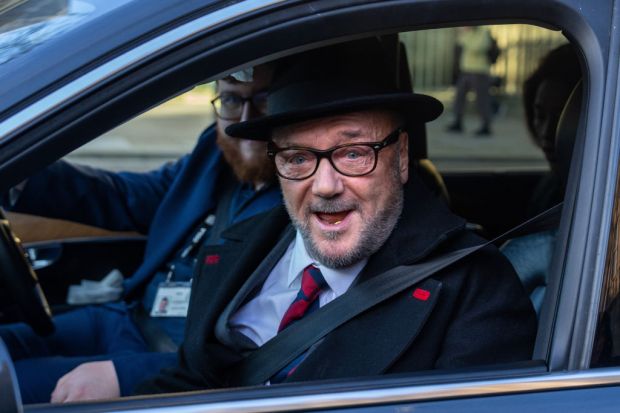He took nearly a month to assess the state of his campaign after a whopping 15-point defeat in the crucial battleground state of Michigan. But after private deliberations with his wife, Jane, and some lobbying from his senior political advisers, Bernie Sanders came to the conclusion that continuing his presidential campaign would likely do more harm than good. On Wednesday he decided to call it quits, telling his supporters that there was ‘no alternative’.
Mathematically, he was right. Sanders was trailing former Vice President Joe Biden by over 300 delegates in the primaries and would have needed to win over 60 per cent of the remaining delegates to capture the Democratic Party nomination. Such a feat would have frankly required an even bigger miracle that Biden’s electoral romp on Super Tuesday. Sanders may be a political revolutionary, but those who have worked with the senator for decades also say he’s a pragmatist – and somebody who knows when the battle is lost.
Why did Bernie lose? Many will spend the coming days contemplating the answer. Books will be written on the stubbornness of the candidate, the personal rivalries between his senior campaign officials, the organisational shortcomings of his campaign’s infrastructure, and whether its money was spent wisely. But this type of inside-baseball drama skips over three main points that explain why Sanders couldn’t beat the Democratic Party’s entrenched establishment.
One, Sanders’s support amongst the African American community – the party’s most reliable voting bloc – was abysmal. For one reason or another, he simply couldn’t convince older African American voters to give him a chance. The margins prove it. In South Carolina, the beginning of the end for Sanders’s presidential campaign, the senator was down by 44 points with African Americans against Biden. The deficit was 24 points in California; 60 points in Florida; 45 points in North Carolina; and 41 points in Michigan. In state after state with a large African-American electorate, Biden trounced Sanders and gobbled up a heavy share of delegates to boot. Add all of those delegates up, and it’s no wonder Biden found himself in the position of being the presumptive nominee.
Two, Bernie couldn’t deliver on his top objective: bringing more young Americans to the polls. Voters under the age of 30 are Bernie’s saving grace and the group most passionate about the prospects of a democratic socialist assault on the status-quo. Yet older voters are far more likely to vote than their kids and grandkids. According to the exit polls, only 15 per cent of voters in the Michigan primary were between 18-29 years’ old. In Florida, the number was 11 per cent. In Massachusetts, 16 per cent. And in Texas, 15 per cent. Sanders was banking his candidacy on a massive, nationwide infusion of excited, politically engaged young Americans powering his political revolution. Such a revolution never materialised.
Last but not least, while Donald Trump wasn’t competing in the Democratic primary, he was the large, obnoxious elephant in the room no Democrat could avoid. It turns out that Democrats were less interested in Medicare-for-all, free college tuition, a trillion-dollar environmental programme, and a full-blown assault on Wall St. as they were in making sure Trump doesn’t extend his stay in the White House. Trump has so terrified the Democratic Party that its members view defeating the president in November as priorities 1, 2, and 3. The specific policy proposals and platforms of the candidates are almost beside the point.
Joe Biden understood this all along, which is why the former VP centred his candidacy on the electability argument – that he, and he alone, was the party’s best candidate to win states like Michigan, Wisconsin, and Pennsylvania that are necessary to win the presidency. In poll after poll and survey after survey, Biden was consistently viewed as the candidate best positioned to defeat Trump in the general election. Sanders was hoping America was ready for a revolution. The majority of Democrats, however, didn’t believe a revolution was an effective way to defeat a president they despise.
Bernie Sanders should be proud of what he accomplished. He may have lost the Democratic primary, but he will be a household name for years. And he will play a critical role on the stump between now and Election Day in seven months. Sanders’ job now is to persuade his millions of supporters to swallow their pride, focus on the big picture, and turn out for the old establishment politician from Delaware. Sanders failed to do it on behalf of Hillary Clinton in 2016, and the result was the biggest political upset in American history. Whether he succeeds or fails in 2020 may very well determine who is measuring the drapes in the Oval Office in January 2021.
Got something to add? Join the discussion and comment below.
Get 10 issues for just $10
Subscribe to The Spectator Australia today for the next 10 magazine issues, plus full online access, for just $10.




















Comments
Don't miss out
Join the conversation with other Spectator Australia readers. Subscribe to leave a comment.
SUBSCRIBEAlready a subscriber? Log in